Davetli Konuşmacılar
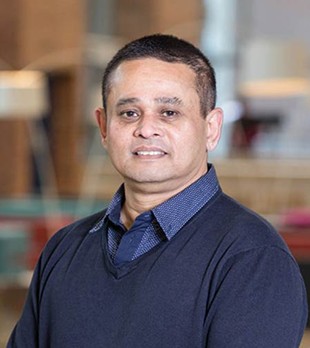
Dr Shiva Das SIVASUBRAMANIAM – PhD, FHEA, FIBMS, CSci
Deputy Dean, School of Life and Health Sciences at the University of Roehampton in London, UK
Biodata
Dr. Shiva is the Deputy Dean of the School of Life and Health Sciences at the University of Roehampton in London, UK. He is a founding member of the European Network for Academic Integrity (ENAI), established through collaboration among several European universities. He also sits on the ENAI Board of Directors and chairs its Ethics and Integrity Advisory Working Group.
At the University of Roehampton, he leads and coordinates a vibrant academic team engaged in research-informed teaching within the medical sciences. His professional focus includes fostering active learning, internationalisation, and pedagogic development, along with consultancy work in biomedical and forensic sciences.
Dr. Shiva has dedicated over 35 years to advancing ethics and integrity across all areas of academia, including education, research, and academic leadership. His scholarly work spans biomedical science, medical ethics, and academic integrity, with particular emphasis on student engagement, plagiarism awareness and prevention, and effective and ethical engagement with AI in higher education.
In recognition of his continuous commitment to excellence in integrity, he was honoured with the ENAI Outstanding Member Award in 2024, a testament to his sustained contributions to promoting ethical standards and academic integrity at both institutional and international levels. In 2025, his sustained commitment to integrity was further recognised by Studiosity, which named him the Europe & UK winner of the 2025 Tracey Bretag Prize for Academic Integrity.
Title of the Presentation: Authorship Reloaded: Making Sense of the New Scholarly Frontier in AI- Assisted Research Era
Abstract:
Academic authorship has long been an ethical and structural minefield. Even before the rise of Artificial Intelligence, issues such as ghost and gift authorship, unclear contribution criteria, disputes over authorship order, and uneven accountability have challenged the integrity of scholarly communication. Pressures to publish rapidly, often for career advancement, have further encouraged practices that prioritise output over rigour and transparency.
The emergence of Generative AI (Gen-AI) adds new complexity to these long-standing tensions. AI tools can now generate literature reviews, analyse data, and draft manuscripts, raising profound questions about originality, intellectual contribution, and responsibility. If an AI system assists in writing, who truly deserves credit? How should its role be disclosed? And who is accountable for fabricated references, biased summaries, or hallucinated data that might result from algorithmic assistance? Without clear guidance, these issues risk eroding trust in the scholarly record and amplifying inequities between researchers with differing access to advanced technologies.
This keynote explores how Gen-AI is reshaping the very definition of authorship and examines emerging responses from publishers, institutions, and global ethics bodies. It will discuss practical solutions including transparent disclosure of AI use, revision of authorship and contributorship criteria (e.g., through the CRediT taxonomy), AI ethics and literacy training, and shared accountability frameworks to ensure human oversight of all AI-assisted work.
Rather than resisting technological change, the session argues for a model of responsible integration, where human creativity, critical thinking, and ethical judgement remain central. By confronting both the old and new challenges of authorship, academia can build a publishing culture that balances innovation with integrity—anchored in accountability, fairness, and trust.
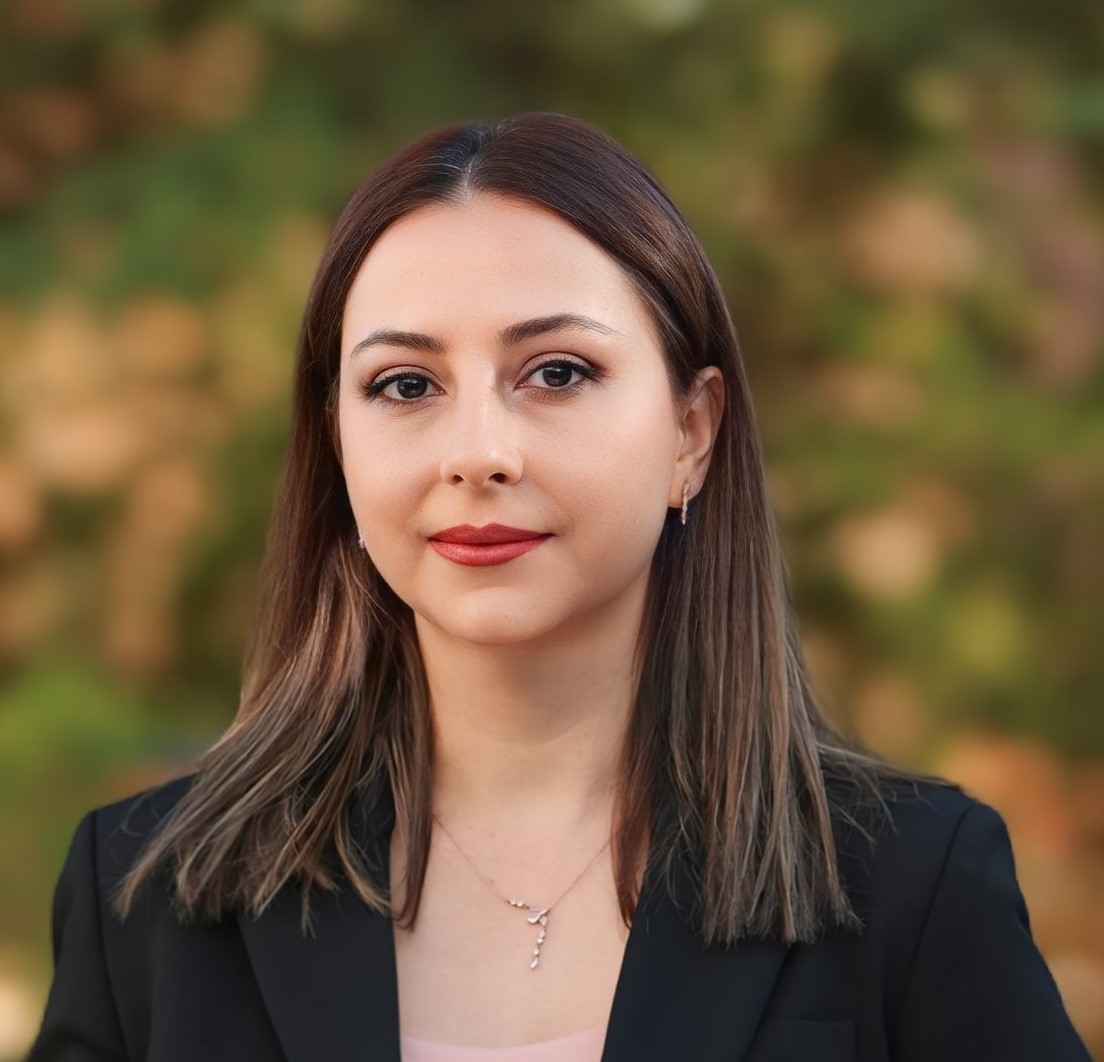
Prof. Dr. Ayfer Sayın
Gazi Universitesi Gazi Eğitim Fakültesi
Gazi University, Gazi Faculty of Education, Ankara, Türkiye
Sunum Başlığı/The Title of Presentation:
Eğitimde Yapay Zeka Çağı: Ölçme ve Değerlendirmenin Yeniden Tanımlanması
"The Age of Artificial Intelligence in Education: Redefining Assessment and Evaluation"
Biodata
Prof. Dr. Ayfer Sayın is a faculty member in the Department of Educational Measurement and Evaluation at Gazi University, Gazi Faculty of Education. She completed her master's degree in 2010 and her Ph.D. in 2014 in the same field at Hacettepe University. She received the title of Associate Professor in Educational Measurement and Evaluation in 2019 and became a full Professor in 2024. Between 2022 and 2024, and again in 2025, she served as a visiting scholar at the University of Alberta in Canada, contributing to AI-supported projects. Her academic work focuses on AI-based assessment and evaluation, automatic item generation, automated scoring, test development, and the measurement of language skills. Prof. Dr. Sayın has numerous publications at both national and international levels. She has also provided consultancy services to various public and private institutions in the field of assessment and evaluation and has served as a project coordinator, researcher, and expert in national and international projects. Additionally, she is the Chair of the Board of Directors of IGENAS Artificial Intelligence Software Company, located in Gazi Technopark.
Özgeçmiş
Prof. Dr. Ayfer Sayın, Gazi Üniversitesi Gazi Eğitim Fakültesi Eğitimde Ölçme ve Değerlendirme Ana Bilim Dalında öğretim üyesidir. Hacettepe Üniversitesi Eğitimde Ölçme ve Değerlendirme Ana Bilim Dalında 2010 yılında yüksek lisansını, 2014 yılında doktora eğitimini tamamlamıştır. 2019 yılında Eğitimde Ölçme ve Değerlendirme alanında doçentlik ünvanı, 2024 yılında profesörlük ünvanını almıştır. 2022-2024 yılları arasında ve 2025 yılında Kanada’daki Alberta Üniversitesinde misafir öğretim üyesi olarak yapay zekâ destekli projelerde görev almıştır.Akademik çalışmalarını yapay zekâ tabanlı ölçme ve değerlendirme, otomatik madde üretimi, otomatik puanlama, test geliştirme ve dil becerilerinin ölçülmesi konularında yoğunlaştıran Prof. Dr. Sayın’ın ulusal ve uluslararası düzeyde çok sayıda yayını bulunmaktadır. Ayrıca kamuda ve özel sektörde çeşitli kurumlara ölçme-değerlendirme alanında danışmanlık yapmış, ulusal ve uluslararası projelerde yürütücü, araştırmacı ve uzman olarak görev almıştır. Gazi Teknopark’ta yer alan IGENAS Yapay Zeka Yazılım şirketinin de yönetim kurulu başkanlığını yürütmektedir.
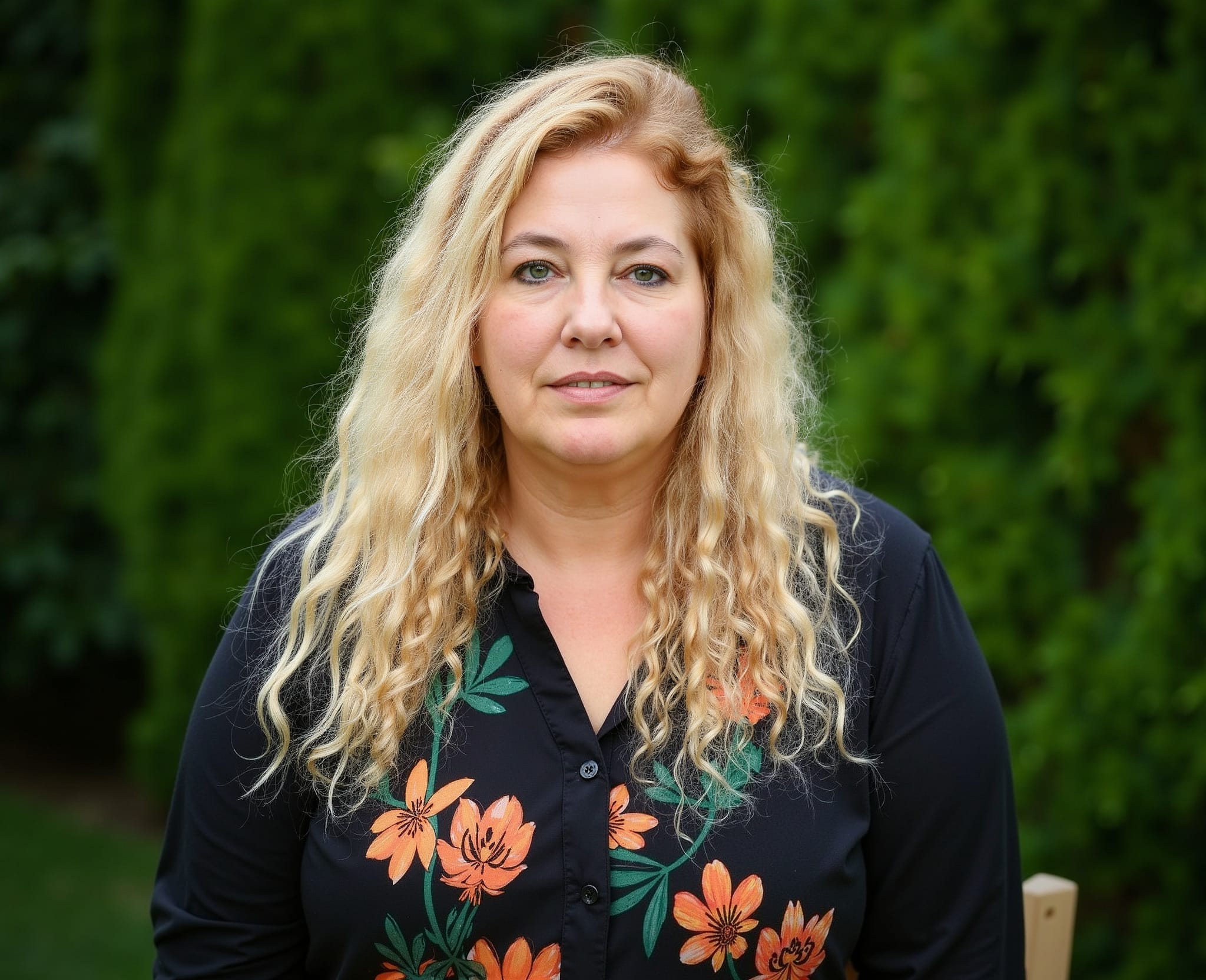
Christine Coombe
Higher Colleges of Technology, Dubai, UAE
Title of the Presentation:
ProfCore Elements of Future-Ready Classrooms: Rethinking Education for a Changing World
This presentation highlights a two-year study identifying seven core elements of the future-ready classrooms, including sustainability, well-being, mobility, cultural competence, community engagement, AI integration, and DEIA. Based on global research, it explores emerging shifts in education and offers strategies to help educators and policymakers create adaptable, inclusive, and innovative learning environments.
Biodata
Dr. Christine Coombe holds a Ph.D. in Foreign and Second Language Education from The OhioState University. She is currently an Associate Professor of General Studies at the HigherColleges of Technology in Dubai. Previously, she served as Testing and Measurement Supervisor at the United Arab Emirates University and Assessment Coordinator at Zayed University. Over the course of her distinguished career, Dr. Coombe has published more than 60 books on various topics in TESOL and English Language Teaching (ELT) and has served as
Editor-in-chief of Language Teaching Research Quarterly since 2017.
During her 35-year tenure in the Middle East, she has received numerous awards recognizing her leadership and scholarship. Among them are the 2002 Spaan Fellowship for Research in Second/Foreign Language Assessment, the 2002–03 TOEFL Outstanding Young Scholar Award, and the Chancellor’s Teacher of the Year Award (2003–04). She chaired the TESOL 2006 Convention in Tampa and later received the British Council International Assessment Award (2013). Dr. Coombe was named to TESOL’s 50@50 list, honoring professionals who have made significant contributions to the field over the organization’s first fifty years. In 2018, she received the James E. Alatis Award for Service to TESOL, and in 2021, she was recognized by the U.S. Department of State as one of its 30@30 English Language Specialists, celebrating three decades of impact in global English language teaching and training. She currently serves on the Board of Trustees of TIRF (The International Research Foundation) and is a past President of TESOL International Association (2011–2012).

Assoc.Prof. Dr. Tamar Dolidze
Batumi State Maritime Academy (Georgia)
Title of the Presentation:
Empowering ESP Learners: Enhancing Productive Skills through AI-Driven Pedagogy in Business, Legal, Maritime, and Engineering English
Abstract:
The integration of Artificial Intelligence (AI) into English for Specific Purposes (ESP) pedagogy is reshaping how educators design, deliver, and evaluate instruction in professional communication. In fields such as Business, Law, Maritime Studies, and Engineering, where precision, clarity, and context-specific discourse are vital, AI offers transformative possibilities for developing learners’ productive skills—speaking and writing—with unprecedented authenticity and adaptability. This plenary session examines how AI-powered tools, including generative text and speech models, intelligent feedback platforms, and adaptive communication simulators, can be strategically utilized to create immersive, task-based learning experiences in specialized domains. Examples include AI-driven negotiation simulations in Business English, automated case brief analyses in Legal English, virtual command-bridge communication scenarios in Maritime English, and project-report drafting tools in Engineering English. Such applications not only promote linguistic accuracy and fluency but also cultivate learners’ professional reasoning, intercultural competence, and confidence in domain-specific contexts. Drawing on current research and classroom practice, the session presents practical frameworks for integrating AI tools into ESP curricula while maintaining pedagogical integrity and human-centered learning. Attention will also be given to ethical considerations such as academic honesty, data security, and the teacher’s evolving role as facilitator, evaluator, and collaborator in AI-mediated learning environments. Ultimately, this talk invites educators to reconceptualize the ESP classroom as a dynamic, technology-enriched ecosystem that bridges linguistic mastery with professional expertise. By leveraging AI’s potential thoughtfully, ESP practitioners can empower learners to become effective communicators capable of thriving in the complex communicative demands of global business, legal, maritime, and engineering domains.
Keywords: AI in ELT, ESP, Business English, Legal English, Maritime English, Engineering English, productive skills, digital pedagogy, professional communication
Özet
Yapay Zekânın (YZ) Amaçlara Yönelik İngilizce (ESP) öğretimine entegrasyonu, eğitimcilerin mesleki iletişim alanında ders tasarlama, sunma ve değerlendirme biçimlerini köklü biçimde dönüştürmektedir. İşletme, Hukuk, Denizcilik ve Mühendislik gibi alanlarda, kesinlik, açıklık ve bağlama özgü söylem büyük önem taşırken, YZ; öğrencilerin üretken becerilerini—konuşma ve yazma—benzersiz bir özgünlük ve uyarlanabilirlikle geliştirmek için dönüştürücü olanaklar sunmaktadır.Bu açılış oturumu; üretken metin ve konuşma modelleri, akıllı geri bildirim platformları ve uyarlanabilir iletişim simülatörleri gibi YZ destekli araçların, uzmanlık alanlarında görev temelli, sürükleyici öğrenme deneyimleri yaratmak için nasıl stratejik biçimde kullanılabileceğini ele almaktadır. Örnekler arasında; İş İngilizcesinde YZ destekli müzakere simülasyonları, Hukuk İngilizcesinde otomatik dava özeti analizleri, Denizcilik İngilizcesinde sanal komuta köprüsü iletişim senaryoları ve Mühendislik İngilizcesinde proje raporu hazırlama araçları yer almaktadır. Bu tür uygulamalar yalnızca dilsel doğruluk ve akıcılığı teşvik etmekle kalmaz, aynı zamanda öğrencilerin mesleki akıl yürütme becerilerini, kültürlerarası yetkinliklerini ve alanlarına özgü bağlamlarda kendilerine olan güvenlerini de geliştirir. Güncel araştırmalar ve sınıf uygulamalarına dayanarak, bu oturum; YZ araçlarının ESP müfredatına pedagojik bütünlük ve insan merkezli öğrenme anlayışı korunarak nasıl entegre edilebileceğine dair pratik çerçeveler sunmaktadır. Ayrıca akademik dürüstlük, veri güvenliği ve öğretmenin YZ aracılı öğrenme ortamlarındaki değişen rolü—kolaylaştırıcı, değerlendirici ve iş birliği sağlayıcı olarak—gibi etik konulara da dikkat çekilecektir. Sonuç olarak bu konuşma, ESP sınıfını dilsel ustalık ile mesleki uzmanlığı birleştiren dinamik, teknolojiyle zenginleştirilmiş bir ekosistem olarak yeniden düşünmeye davet etmektedir. YZ’nin potansiyelinden bilinçli biçimde yararlanarak, ESP uygulayıcıları; öğrencileri küresel iş, hukuk, denizcilik ve mühendislik alanlarının karmaşık iletişim taleplerinde başarılı olabilecek etkili iletişimciler haline getirebilir.
Biodata
Since 2017, Dr. Tamari Dolidze has served as an Associate Professor at Batumi State Maritime Academy (Georgia) and, since 2020, at Pegaso International Online University (Malta). A distinguished scholar in English for Specific Purposes (ESP) and maritime education, she has held visiting professorships at several international universities and has been an active participant in Erasmus+ Teaching Mobility initiatives. Dr. Dolidze has coordinated and contributed to multiple Erasmus+ projects, including Virtual Innovative Teaching and Learning, which promotes the integration of digital tools and AI technologies into maritime and higher education. In 2023, she led an IAMU-funded project advancing innovation and pedagogical excellence in maritime education and training. Her research and publications address key themes such as digital transformation, ESP methodology, gender equality, and technology-enhanced learning. As a plenary speaker, Dr. Dolidze has delivered influential talks at international conferences on AI in ELT, digitalization in higher education, and innovation in ESP instruction, inspiring educators to embrace forward-thinking approaches to language teaching and professional communication. She serves as a reviewer for the International Journal of Linguistics, Language and Culture, and as an editorial board member for the International Journal of Knowledge and Learning and the International Journal of Digital Humanities (Scopus-indexed). Since 2022, she has also served on the review and evaluation committee for the IAMUC Conference. Dr. Dolidze remains a driving force in promoting research-led innovation, international collaboration, and the ethical integration of AI and digital pedagogies in ESP education worldwide.
Özgeçmiş
Dr. Tamari Dolidze, 2017 yılından bu yana Batum Devlet Denizcilik Akademisi'nde (Gürcistan), 2020 yılından itibaren ise Pegaso Uluslararası Çevrim İçi Üniversitesi'nde (Malta) doçent olarak görev yapmaktadır. Özel Amaçlı İngilizce (ESP) ve denizcilik eğitimi alanında seçkin bir akademisyen olan Dr. Dolidze, birçok uluslararası üniversitede misafir öğretim üyeliği yapmış ve Erasmus+ Öğretim Hareketliliği programlarına aktif olarak katılmıştır. Dr. Dolidze, dijital araçlar ve yapay zekâ teknolojilerinin denizcilik ve yükseköğretime entegrasyonunu teşvik eden “Sanal Yenilikçi Öğretim ve Öğrenme” gibi birçok Erasmus+ projesinde koordinatörlük ve katkı sunucu roller üstlenmiştir. 2023 yılında, denizcilik eğitimi ve öğretiminde yenilik ve pedagojik mükemmeliyeti geliştirmeye yönelik IAMU destekli bir projeye liderlik etmiştir. Araştırmaları ve yayınları; dijital dönüşüm, ESP metodolojisi, toplumsal cinsiyet eşitliği ve teknoloji destekli öğrenme gibi temel temalara odaklanmaktadır. Dr. Dolidze, uluslararası konferanslarda ana konuşmacı olarak; İngilizce öğretiminde yapay zekâ, yükseköğretimde dijitalleşme ve ESP öğretiminde yenilik konularında etkili sunumlar yaparak, eğitimcileri ileri görüşlü dil öğretimi ve profesyonel iletişim yaklaşımlarını benimsemeye teşvik etmiştir. Ayrıca, International Journal of Linguistics, Language and Culture dergisinde hakemlik yapmakta; International Journal of Knowledge and Learning ile International Journal of Digital Humanities (Scopus indeksli) dergilerinin yayın kurullarında yer almaktadır. 2022 yılından bu yana IAMUC Konferansı’nın değerlendirme ve inceleme komitesinde de görev almaktadır. Dr. Dolidze, araştırma odaklı yenilikçiliği, uluslararası iş birliğini ve yapay zekâ ile dijital pedagojilerin etik entegrasyonunu ESP eğitimi alanında küresel ölçekte teşvik eden öncü bir akademisyen olarak çalışmalarını sürdürmektedir
.
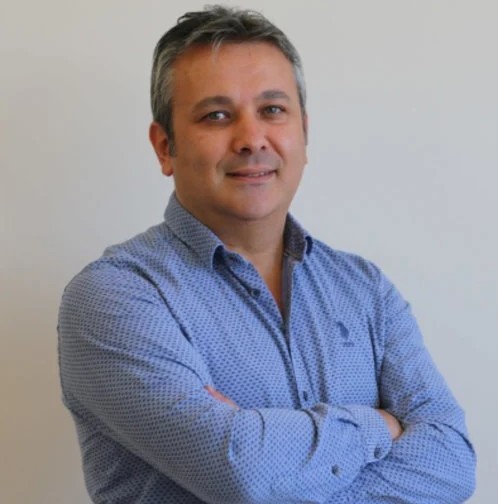
Prof. Dr. Ercümend ERSANLI
Ondokuz Mayıs Üniversitesi, Sağlık Bilimleri Fakültesi- Samsun, Türkiye
Sunum Başlığı/Title of the Presentation:
Eğitim Sisteminin Çağın Gereklerine Göre Yeniden Yapılandırılmasına Vizyoner Bir Yaklaşım
"A Visionary Approach to Restructuring the Education System in Line with the Demands of the Era"
Biodata
Born in Samsun in 1978, Ercümend Ersanlı graduated as the top student from the Guidance and Psychological Counseling program at Ondokuz Mayıs University in 2001. He earned the title of Associate Professor in Psychological Counseling and Guidance in 2012 and became a full Professor in 2020. Between 2011 and 2015, he served at Amasya University. He has authored approximately 120 publications, including articles, conference papers, and book chapters, and has participated in seven projects as either a principal investigator or researcher. His academic work primarily focuses on psychometrics, artificial intelligence in education, and tolerance. Among his notable studies are: “Electroencephalographic (EEG) Analysis of Political Parties’ Video Messages for the May 19th Commemoration of Atatürk, Youth and Sports Day,” “Development and Validation of the Tablet-Based ERAL Nonverbal Intelligence Test for Ages 5–17 (ERAL-NIT),”“Psychological Characteristics of Geniuses and Their Impact on Curricula for Gifted Individuals.” He has held various administrative roles, including Chair of the University Ethics Committee, and has received awards, served as an editor, and been a member of editorial boards. Ersanlı has supervised nearly twenty theses and taught applied courses such as Solution-Focused Brief Counseling. He currently serves as Head of the Department of Social Work and Chair of the Neuromarketing Division. He is married and the father of two daughters.
Ögeçmiş
2011–2015 yılları arasında Amasya Üniversitesi’nde görev yaptı. Makale, bildiri ve kitap bölümlerinden oluşan yaklaşık 120 yayına imza attı; yedi projede yürütücü ya da araştırmacı olarak yer aldı. Çalışmaları ağırlıklı olarak psikometri, eğitimde yapay zekâ ve tolerans alanlarına odaklanır; “Siyasi Partilerin 19 Mayıs Atatürk’ü Anma, Gençlik ve Spor Bayramı Video Mesajlarının Elektroensefalograf (EEG) ile Analizi”, “Tablet Tabanlı ERAL Sözel Olmayan Zeka Testi 5-17’nin (ERAL-NIT) Geliştirilmesi ve Doğrulanması” ve “Dahilerin Psikolojik Özellikleri ve Üstün Zekalı Bireyler için Müfredatlara Etkileri” gibi çalışmalar yürütmüştür. Üniversite Etik Kurulu Başkanlığı dahil çeşitli idari görevler üstlenmiş; ödülleri, editörlükleri ve yayın kurulu üyelikleri bulunmaktadır. Yirmiye yakın teze danışmanlık yapan Ersanlı, Kısa Süreli Çözüm Odaklı Psikolojik Danışma gibi uygulamalı dersler vermiştir. Sosyal Hizmet Bölüm Başkanlığı ve Nöropazarlama Anabilim Dalı Başkanlığı görevlerini de yürütmektedir. Evli ve iki kız babasıdır.
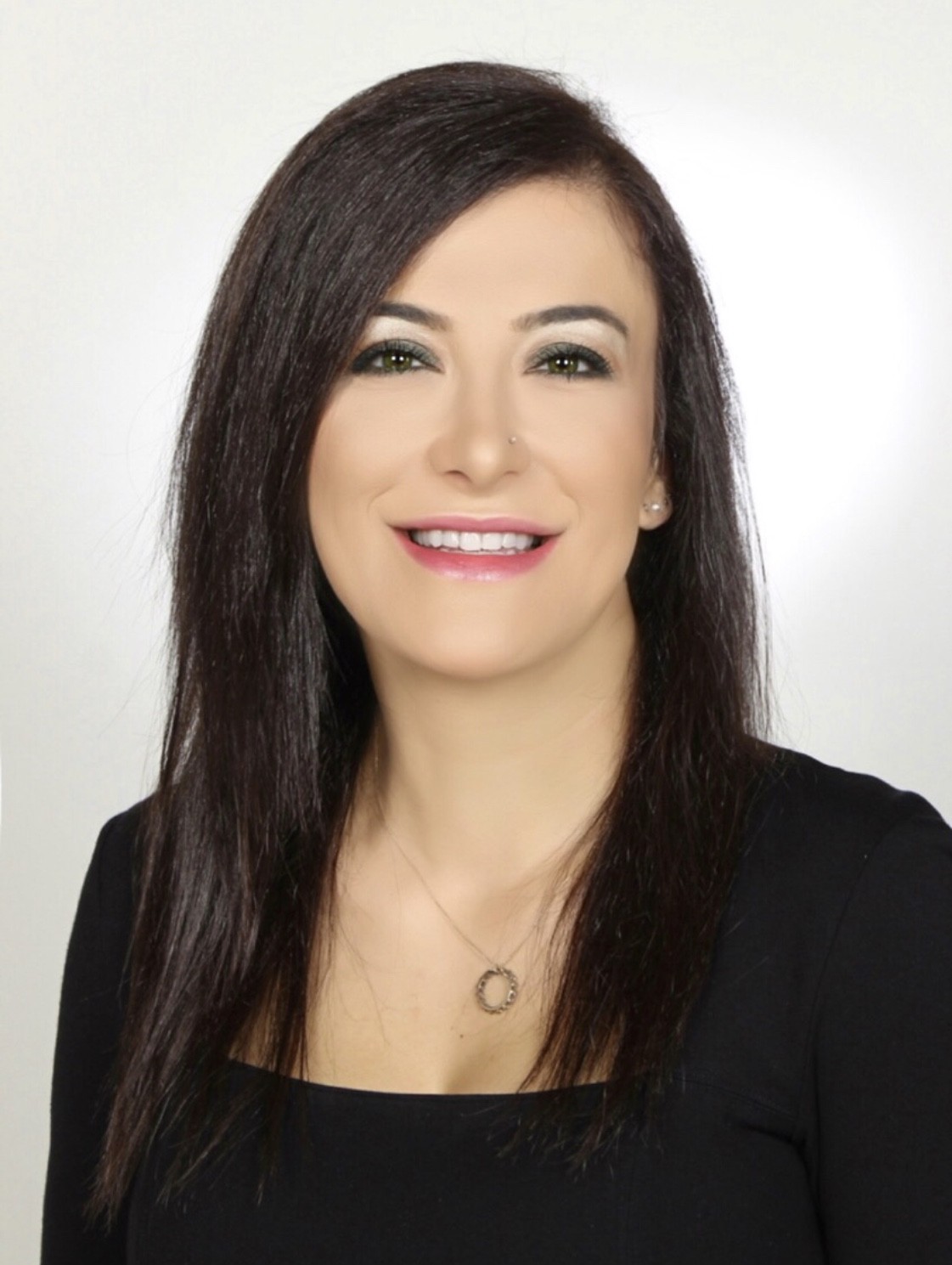
Assoc. Prof. Dr Hilal Peker
Florida Gulf Coast University
Fulbright Alumna (Austin, TX)
Title of the Presentation: From Policy to Practice: A Practical Roadmap for AI in Advising and Teaching
Abstract:
Artificial Intelligence (AI) is rapidly reframing the work of educators, advisors, and academic leaders. Beyond the hype, the central question is not “if” but “how” we integrate AI to expand access, uphold academic integrity, and accelerate student success regarding high-impact practices. This keynote shares a tested, course-embedded model for ethical AI integration developed in a research-intensive fellowship and scholarship environment. The approach combines transparent AI use policies, dual-draft revision workflows, reflective documentation of AI assistance, and instructor/peer feedback cycles. The result is a humane, integrity-centered framework that improves writing quality, speeds the revision process, and builds students’ confidence as researchers and professionals.
Özet:
Yapay Zekâ (YZ), eğitimcilerin, danışmanların ve akademik liderlerin çalışmalarını hızla yeniden şekillendiriyor. Abartıların ötesinde, temel soru artık “YZ’yi entegre etmeli miyiz?” değil, “YZ’yi nasıl entegre etmeliyiz?” sorusudur. Bu entegrasyonun amacı, erişimi genişletmek, akademik dürüstlüğü korumak ve yüksek etkili uygulamalar bağlamında öğrenci başarısını hızlandırmaktır. Bu açılış konuşması, araştırma odaklı burs ve destek programları ortamında geliştirilen, etik YZ entegrasyonuna yönelik ders içi uygulamalı ve denenmiş bir modeli paylaşmaktadır. Bu yaklaşım; şeffaf YZ kullanım politikalarını, çift taslaklı revizyon süreçlerini, YZ desteğinin yansıtıcı biçimde belgelenmesini ve eğitmen/akran geri bildirim döngülerini bir araya getirir. Sonuç olarak ortaya çıkan insani ve dürüstlük odaklı çerçeve; yazı kalitesini artırır, revizyon sürecini hızlandırır ve öğrencilerin araştırmacı ve profesyonel olarak kendilerine olan güvenlerini geliştirir.
Biodata:
Dr. Hilal Peker is an Associate Professor of TESOL in the College of Education and serves as Fulbright Program Advisor and Director of the Office of Competitive Fellowships in the Honors College at Florida Gulf Coast University (FGCU). She is a Fulbright alumna (University of Texas at Austin) as well as an Erasmus scholar and Comenius alumna. Her research centers on inclusive dual-language immersion programs, the reconceptualized L2 Motivational Self System (R-L2MSS), bullying victimization among L2 learners, L2 identity, and the applications of AI and simulation technologies in language education and pre-service teacher education.
Özgeçmiş
Dr. Hilal Peker, Florida Gulf Coast Üniversitesi (FGCU) Eğitim Fakültesi’nde TESOL (Yabancılara İngilizce Öğretimi) alanında doçent olarak görev yapmaktadır. Aynı zamanda Fulbright Program Danışmanı ve Onur Koleji bünyesindeki Rekabetçi Burslar Ofisi’nin Direktörüdür. Fulbright bursiyeri (University of Texas at Austin), Erasmus araştırmacısı ve Comenius programı mezunudur. Araştırmaları; kapsayıcı çift dilli dil daldırma programları, yeniden yapılandırılmış İkinci Dil Motivasyonel Benlik Sistemi (R-L2MSS), ikinci dil öğrenenler arasında zorbalık mağduriyeti, ikinci dil kimliği ve yapay zekâ ile simülasyon teknolojilerinin dil eğitimi ve öğretmen adaylarının eğitimi alanındaki uygulamaları üzerine yoğunlaşmaktadır.
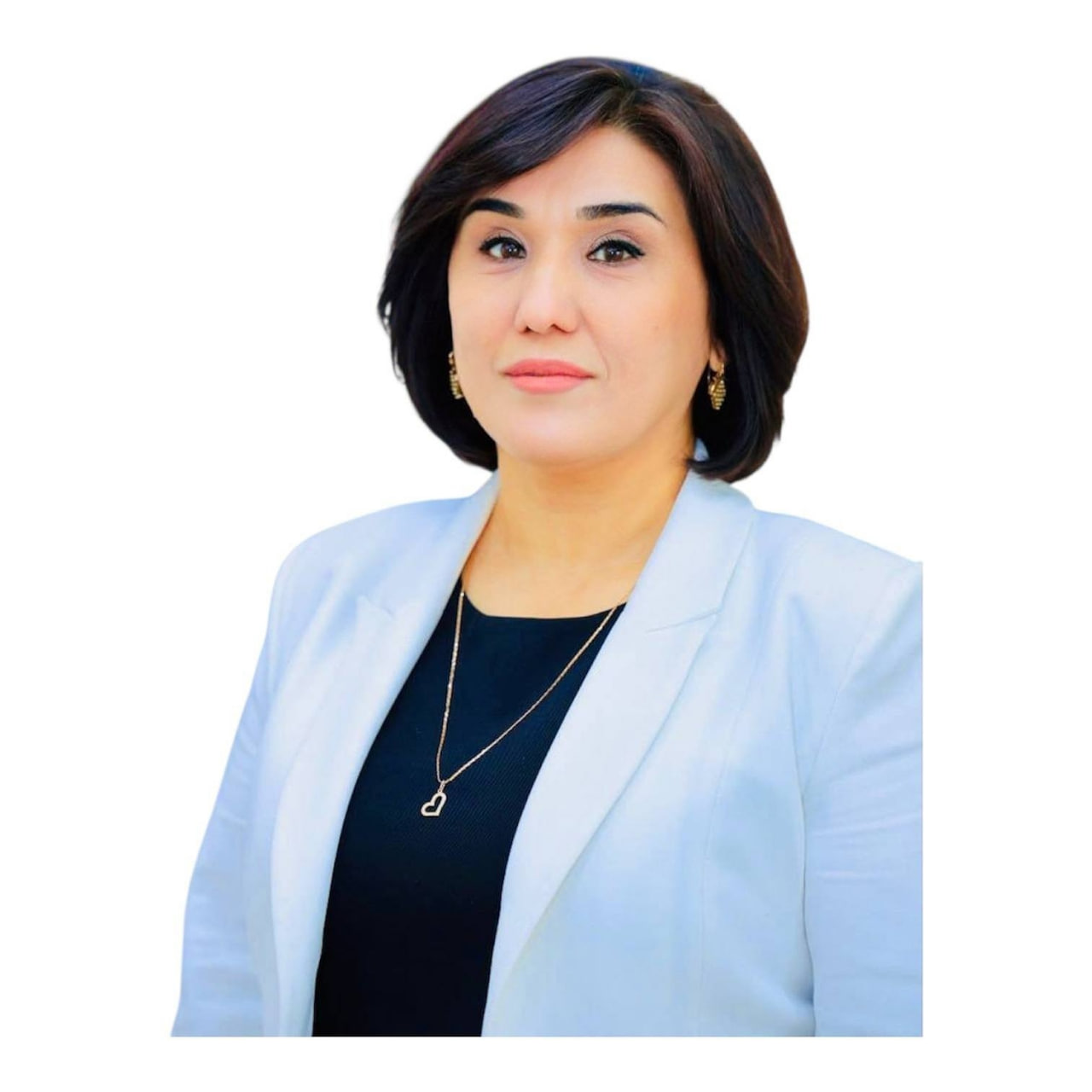
Dr. Rokhatoy Abidova
Urgench State University, Uzbekistan
Title of the Presentation:
Current Issues in Developing Inclusive Education for Teaching Foreign Languages in Uzbekistan
Abstract:
This article comprehensively analyzes the theoretical, legal, and practical aspects of the process of developing an inclusive education system in the Republic of Uzbekistan. In recent years, the formation of an education system based on the principles of human rights, equal opportunities, and social justice in our country has become one of the priority areas of state policy. In this regard, inclusive education is gaining special importance as a form of education that allows every child, regardless of their physical, mental, or social condition, to receive quality education and participate fully in society. The article analyzes the changes in the education system of Uzbekistan based on the Law “On the Rights of Persons with Disabilities”, the new edition of the Law “On Education”, the “Development Strategy of New Uzbekistan”, and the principles of inclusion put forward by international organizations (UN, UNESCO, UNICEF). The research methodology used systematic, comparative, and empirical analysis, and practical problems were identified through questionnaires administered to teachers, parents, and students. The results show that the main obstacles to the implementation of inclusive education remain insufficient special training of teachers, inadequate material and technical base, and incomplete formation of a culture of inclusion in society. The article emphasizes the need to improve the skills of teachers, adapt school infrastructure, form a positive attitude in society, and adapt international experiences to national conditions as solutions to these problems. In general, the article evaluates inclusive education as an important factor in promoting human dignity and building a just and tolerant society in Uzbekistan.
Sunum Başlığı;
Özbekistan'da Yabancı Dil Öğretiminde Kapsayıcı Bir Eğitim Sistemi Geliştirmenin Güncel Sorunları
Bu makale, Özbekistan Cumhuriyeti'nde kapsayıcı bir eğitim sisteminin geliştirilmesi sürecinin teorik, yasal ve pratik yönlerini kapsamlı bir şekilde analiz etmektedir. Son yıllarda ülkemizde insan hakları, fırsat eşitliği ve sosyal adalet ilkelerine dayalı bir eğitim sisteminin oluşturulması devlet politikasının öncelikli alanlarından biri haline gelmiştir. Bu bağlamda, kapsayıcı eğitim, fiziksel, zihinsel veya sosyal durumundan bağımsız olarak her çocuğun kaliteli eğitim almasını ve topluma tam olarak katılmasını sağlayan bir eğitim biçimi olarak özel bir önem kazanmaktadır. Makalede, "Engelli Kişilerin Hakları Hakkında Kanun", "Eğitim Hakkında Kanun"un yeni baskısı, "Yeni Özbekistan Kalkınma Stratejisi" ve uluslararası kuruluşların (BM, UNESCO, UNICEF) ortaya koyduğu kapsayıcılık ilkeleri temelinde Özbekistan'ın eğitim sistemindeki değişiklikler analiz edilmektedir. Araştırma metodolojisinde sistematik, karşılaştırmalı ve ampirik analiz kullanılmış ve öğretmenlere, velilere ve öğrencilere uygulanan anketler aracılığıyla pratik sorunlar belirlenmiştir. Sonuçlar, kapsayıcı eğitimin uygulanmasının önündeki temel engellerin öğretmenlere yönelik yetersiz özel eğitim, yetersiz materyal ve teknik altyapı ve toplumda kapsayıcılık kültürünün eksik oluşumu olduğunu göstermektedir. Makalede, bu sorunlara çözüm olarak öğretmenlerin becerilerinin geliştirilmesi, okul altyapısının uyarlanması, toplumda olumlu bir tutum oluşturulması ve uluslararası deneyimlerin ulusal koşullara uyarlanması gerektiği vurgulanmaktadır. Makale genel olarak kapsayıcı eğitimi, Özbekistan'da insan onurunu teşvik etmede ve adil ve hoşgörülü bir toplum inşa etmede önemli bir faktör olarak değerlendirmektedir.
Biodata:
Dr. Rokhatoy Abidova is the Head of the English Language and Literature Department in the Faculty of Foreign Philology at Urgench State University named after Abu Rayhan Biruni, Uzbekistan. She is an Associate Professor and holds a Doctor of Philosophy in Philological Sciences (PhD). Her research and scholarly interests focus on comparative literature, contrastive linguistics, translation theory, as well as language acquisition and the development of effective pedagogical practices in English language instruction. Her teaching portfolio includes Professional-Oriented Foreign Language Teaching (MA), Language Methodology (BA), and English and American Literature (BA). Committed to the professional development of English language educators, Dr. Abidova actively collaborates with colleagues through the Uzbekistan Teachers of English Association (UzTEA) and regularly contributes to international conferences and seminars organized by the British Council and UzTEA. Dr. Abidova has participated in numerous high-profile professional development initiatives, including webinars, the British Council’s English Reform Forum on national English reform, and the English for Teachers program in partnership with the Republican Scientific and Practical Centre for the Development of Innovative Methods in Teaching Foreign Languages. She is actively involved in both Phase 1 and Phase 2 of the Accelerating English Language Learning in Central Asia (AELLCA) project. She is on the editorial board of Theory and Practice in Education (EKU), an online, internationally peer-reviewed scholarly journal that publishes original theoretical and applied research-including quantitative, qualitative, and mixed-methods studies, in the field of education. She has been awarded multiple government scholarships and has participated in international training and scholarship programs at renowned institutions, including the Technical University of Sofia (Bulgaria, 2004), University of Technology MARA (Malaysia, 2007), California State University (USA, 2014), Norwich Institute for Language Education (UK, 2018), KIMEP University (Kazakhstan, 2018), EGE University (Turkey, 2022), Çanakkale Onsekiz Mart University (Turkey, 2025), ENU University (Astana, Kazakhstan, 2025), and Gansu Agricultural University, English Language Department (China, 2025).
Özgeçmiş:
Dr. Rokhatoy Abidova, Özbekistan'daki Ebu Rayhan Biruni'nin adını taşıyan Urgenç Devlet Üniversitesi Yabancı Filoloji Fakültesi'nde İngiliz Dili ve Edebiyatı Bölüm Başkanı'dır. Doçent ve Filoloji Bilimleri alanında Doktora derecesine sahiptir. Araştırma ve akademik ilgi alanları karşılaştırmalı edebiyat, karşılaştırmalı dilbilim, çeviri kuramı, dil edinimi ve İngilizce dil eğitiminde etkili pedagojik uygulamaların geliştirilmesi üzerine odaklanmaktadır. Öğretim portföyü arasında Profesyonel Odaklı Yabancı Dil Öğretimi (MA), Dil Metodolojisi (BA) ve İngiliz ve Amerikan Edebiyatı (BA) bulunmaktadır. İngilizce dil eğitimcilerinin mesleki gelişimine kendini adamış olan Dr. Abidova, Özbekistan İngilizce Öğretmenleri Derneği (UzTEA) aracılığıyla meslektaşlarıyla aktif olarak iş birliği yapmakta ve British Council ve UzTEA tarafından düzenlenen uluslararası konferans ve seminerlere düzenli olarak katkıda bulunmaktadır. Dr. Abidova, web seminerleri, British Council'ın ulusal İngilizce reformu üzerine İngilizce Reform Forumu ve Yabancı Dil Öğretiminde Yenilikçi Yöntemlerin Geliştirilmesi için Cumhuriyetçi Bilimsel ve Pratik Merkezi ile ortaklaşa yürütülen Öğretmenler İçin İngilizce programı da dahil olmak üzere çok sayıda önemli mesleki gelişim girişimine katılmıştır. Orta Asya'da İngilizce Dil Öğreniminin Hızlandırılması (AELLCA) projesinin hem 1. hem de 2. Aşamasında aktif olarak yer almaktadır. Eğitim alanında nicel, nitel ve karma yöntemli çalışmalar da dahil olmak üzere özgün teorik ve uygulamalı araştırmaları yayınlayan, çevrimiçi, uluslararası hakemli bir akademik dergi olan Eğitimde Teori ve Uygulama (EKU) dergisinin yayın kurulunda yer almaktadır. Birçok devlet bursu almış ve Sofya Teknik Üniversitesi (Bulgaristan, 2004), MARA Teknoloji Üniversitesi (Malezya, 2007), Kaliforniya Eyalet Üniversitesi (ABD, 2014), Norwich Dil Eğitimi Enstitüsü (İngiltere, 2018), KIMEP Üniversitesi (Kazakistan, 2018), Ege Üniversitesi (Türkiye, 2022), Çanakkale Onsekiz Mart Üniversitesi (Türkiye, 2025), ENU Üniversitesi (Astana, Kazakistan, 2025) ve Gansu Tarım Üniversitesi İngilizce Dil Bölümü (Çin, 2025) gibi tanınmış kurumlarda uluslararası eğitim ve burs programlarına katılmıştır.
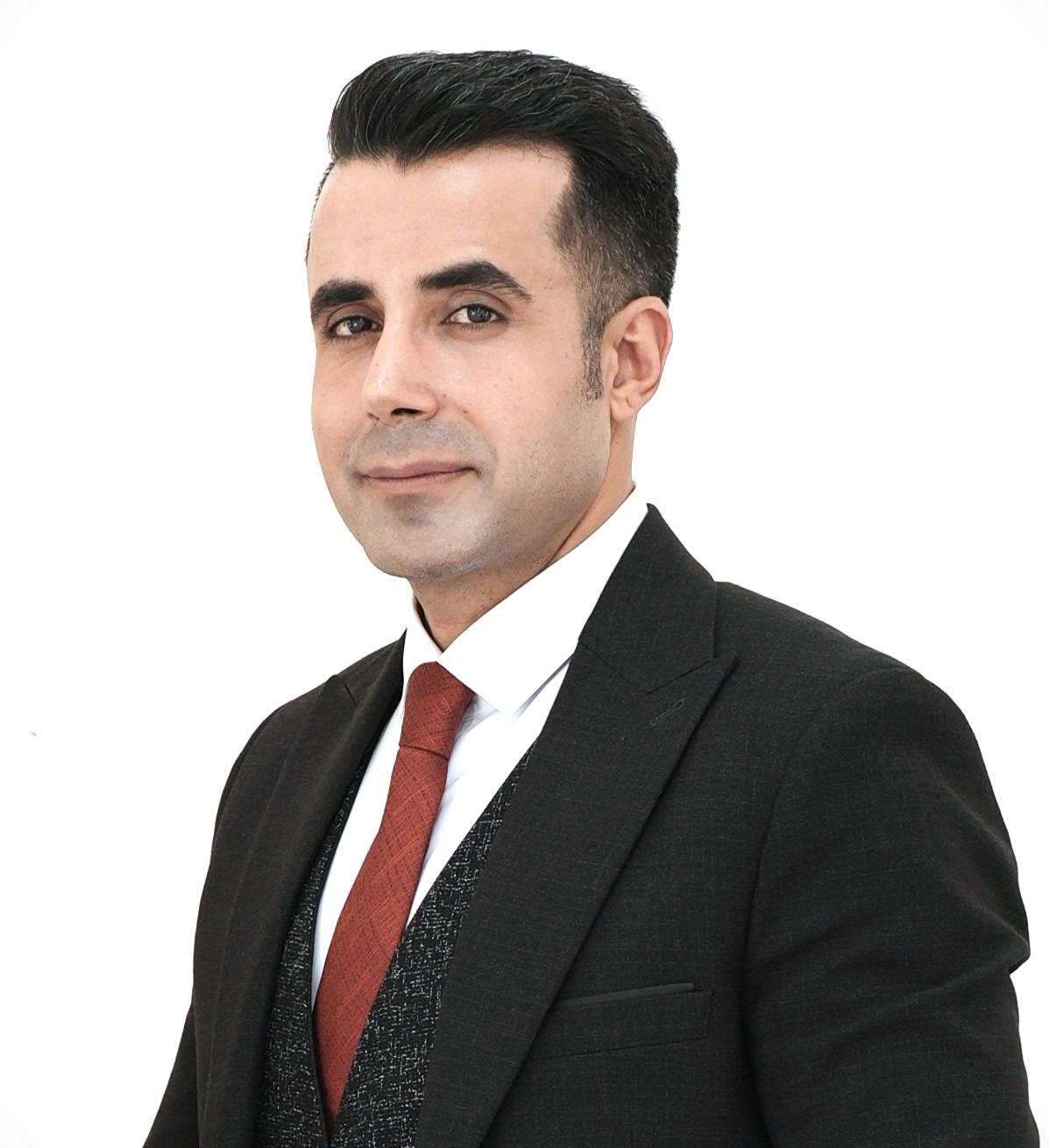
Research Assistant Professor Hassan Nejadghanbar
The Hong Kong Polytechnic University
Title of the Presentation:
Generative AI in Research and Writing: Challenges and Opportunities
Abstract
Since the release of ChatGPT, there has been considerable confusion about the use of generative AI (GenAI) tools in research and writing. While many examples of inappropriate uses exist, there are also examples of their potential benefits. The rapid integration of GenAI into researchers' workflows has outpaced our understanding of the ethical, practical, and emotional considerations involved. As a result, academics and institutions are grappling with questions about best practices, responsible use, and the broader impact of these technologies on scholarly communication.
In this talk, I will present my recent research on GenAI tools in academic publishing. I will address the ethical implications and emotional experiences related to GenAI tools. Additionally, I will discuss the challenges and opportunities they present, as well as their broader implications for academic publishing. I will conclude by sharing a disciplinary framework we have recently developed for using GenAI in research.
Sunum Başlığı: Araştırma ve Yazım Süreçlerinde Üretken Yapay Zekâ: Zorluklar ve Fırsatlar
Özet
ChatGPT'nin piyasaya sürülmesinden bu yana, araştırma ve yazımda üretken yapay zeka (GenAI) araçlarının kullanımı konusunda önemli bir kafa karışıklığı yaşandı. Uygunsuz kullanımlara dair birçok örnek mevcut olsa da, potansiyel faydalarına dair örnekler de mevcut. GenAI'nin araştırmacıların iş akışlarına hızla entegre edilmesi, ilgili etik, pratik ve duygusal hususlara dair anlayışımızı aştı. Sonuç olarak, akademisyenler ve kurumlar en iyi uygulamalar, sorumlu kullanım ve bu teknolojilerin akademik iletişim üzerindeki daha geniş etkisi hakkındaki sorularla boğuşuyor.
Bu konuşmada, akademik yayıncılıkta GenAI araçları üzerine yaptığım son araştırmayı sunacağım. GenAI araçlarıyla ilgili etik etkileri ve duygusal deneyimleri ele alacağım. Ayrıca, sundukları zorlukları ve fırsatları ve akademik yayıncılık üzerindeki daha geniş etkilerini tartışacağım. Son olarak, GenAI'yi araştırmada kullanmak için yakın zamanda geliştirdiğimiz disiplinler arası bir çerçeveyi paylaşacağım.
Biodata
Hassan Nejadghanbar is a Research Assistant Professor in the Department of English and Communication, The Hong Kong Polytechnic University. His research focuses on academic literacy development, research ethics and AI, andteache r education. His recent research has been published in journals such as Language Teaching, TESOL Quarterly, System, Accountability in Research, Ethics and Behaviour and Learned Publishing, among others.
Özgeçmiş
Hassan Nejadghanbar, Hong Kong Politeknik Üniversitesi İngilizce ve İletişim Bölümü’nde araştırmacı yardımcı doçent olarak görev yapmaktadır. Araştırmaları akademik okuryazarlık gelişimi, araştırma etiği ve yapay zekâ ile öğretmen eğitimi konularına odaklanmaktadır. Son dönem çalışmaları; Language Teaching, TESOL Quarterly, System, Accountability in Research, Ethics and Behaviour ve Learned Publishing gibi akademik dergilerde yayımlanmıştır.